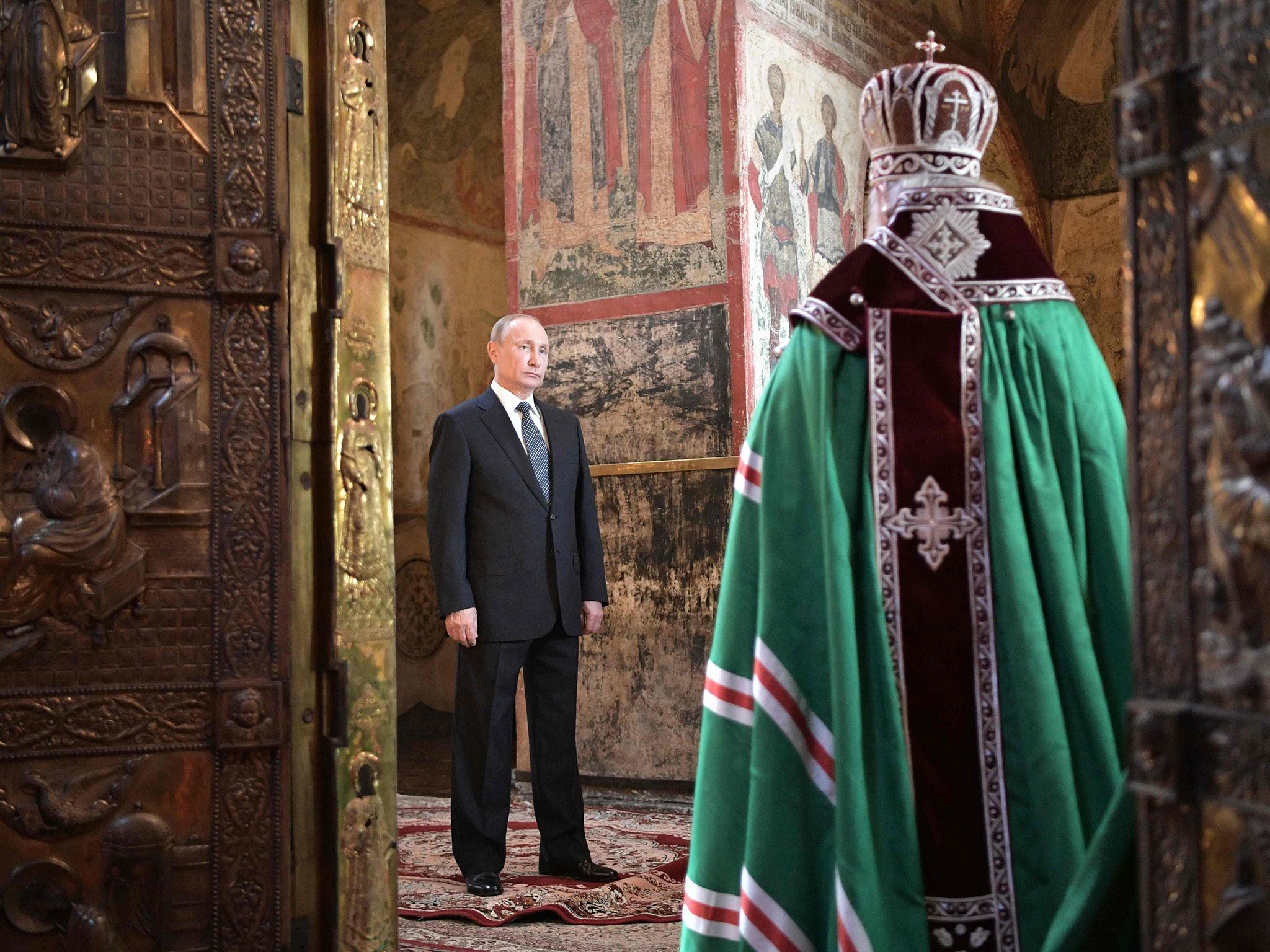Vladimir Putin is right: Russia can only advance if it becomes a free society
As he was sworn in for a fourth term of office, there remains much for the president to do if he is to secure for the Russian people the living standards they desire; and for himself a lasting legacy

Your support helps us to tell the story
From reproductive rights to climate change to Big Tech, The Independent is on the ground when the story is developing. Whether it's investigating the financials of Elon Musk's pro-Trump PAC or producing our latest documentary, 'The A Word', which shines a light on the American women fighting for reproductive rights, we know how important it is to parse out the facts from the messaging.
At such a critical moment in US history, we need reporters on the ground. Your donation allows us to keep sending journalists to speak to both sides of the story.
The Independent is trusted by Americans across the entire political spectrum. And unlike many other quality news outlets, we choose not to lock Americans out of our reporting and analysis with paywalls. We believe quality journalism should be available to everyone, paid for by those who can afford it.
Your support makes all the difference.There was no scrimping on the pomp or the ceremony, as Vladimir Putin was sworn in for a fourth term as president of Russia in one of the Kremlin’s many ornate halls.
A peculiar cast of guests included not only top Russian politicians and officials, but also the head of the Orthodox Church and Putin’s friend from Hollywood, Steven Seagal – as well as around 5,000 others. To some, it seemed more coronation than inauguration.
In his address to the nation which has so faithfully supported him, Putin in turn promised to serve his people and uphold their values – or at least, what he described as Russia’s “traditional” values, which sounded like a neat, politician’s catch-all. Domestic matters, he appeared to suggest, were now top of his agenda.
Sure enough, there remains much for President Putin to do if he is to secure for the Russian people the living standards they desire; and if he is to secure for himself a legacy which has been built over nearly 20 years in power.
From the moment he became acting president following Boris Yeltsin’s resignation in December 1999, Putin’s authority has rarely been seriously challenged. Indeed, his victory in this year’s presidential race was his most compelling electoral victory to date – albeit that there were the usual concerns about “irregularities” at the ballot box. It should be remembered too that his best-known opponent, Alexei Navalny, was not in the race following a disputed conviction for embezzlement.
Nevertheless, for all the power that Putin is able to wield, Russia is still a nation in which there is considerable economic inequality and significant instability. As the president himself noted in his annual state of the nation speech in March, 20 million Russians live below the official poverty line, with the country having been badly hit by the global recession after 2008. Gains made before the financial crash were swiftly lost, with the vulnerable worst hit.
While there have been signs of growth in the last year, predictions up to 2020 suggest a modest GDP growth rate of only 2 per cent at best. Putin has made it clear that matters will only improve if Russia embraces technological change.
To the general public – and perhaps to investors and to oligarchs – that all sounds well and good, not least because any devils will be in the detail. Yet the truth is that technology has been at the forefront of Russian’s approach to foreign affairs, whether on the battlefield or in alleged interactions with the democratic processes of other states.
Indeed, it is a strange irony that Putin’s authority at home has been boosted significantly by adventures abroad, despite the fact that they have been hugely expensive to maintain. Russia has been conducting military operations in Syria for three years, and there have been high-profile and complex engagements in Crimea and, in one way or another, eastern Ukraine as well.
A further paradox is that the election of Donald Trump to the presidency of the United States, which Putin may have welcomed as spreading division in America and the West, has nonetheless made for a much less predictable potential enemy in the White House. Putin is hardly alone in finding Trump a difficult man to read: but the scale of the two nations’ power makes the relationship between their leaders more important than most.
Both at home and abroad then, Putin has much to contend with. That he remains broadly popular among the general population is not in doubt, but it is clear too that his positive talk about Russia being a “free society” must be taken with a pinch of salt. The independence of the media has declined under his rule and political opposition is kept in stern check.
Yet fundamentally Putin has hit on an important truth here. When he said that Russia must “break through in all aspects of life” and that “such a leap forward can only be secured with a free society”, he was right. The question is whether he can permit more freedom if it comes at the expense of his own influence.
Join our commenting forum
Join thought-provoking conversations, follow other Independent readers and see their replies
Comments